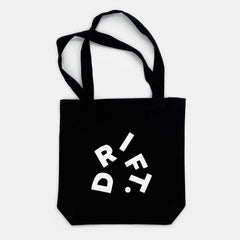The iconic second LP from A Tribe Called Quest. An absolute classic of murky beats, hazy samples and bubbling lyrical flows.
Originally released on 24th September 1991 on the Jive label, The Low End Theory was a remarkable statement of intent from NYC trio* A Tribe Called Quest; rapper and producer Q-Tip, rapper Phife Dawg and DJ/co-producer Ali Shaheed Muhammad. It arrived just a year after the groups landmark debut - People's Instinctive Travels And The Paths Of Rhythm - an album that defined the alternative hip hop summer of 1990 alongside Native Tongues collective cohorts De La Soul and the Jungle Brothers, with the shadows of their seminal 3 Feet High and Rising and Done by the Forces of Nature albums respectively.
Digging into the rich Jazz vaults for samples wasn’t exactly a new direction by any means, but the stark tones and minimalism that they found gave the album such a unique and utterly timeless sound. Particularly using bebop and hard bop, the sound they channelled is often stripped back to just drums and bass. Listening back to it thirty three years later it still sounds remarkably fresh, a strange feat when so much of it’s core musical input in samples predates the albums release by another few decade or so.

The grooves are exquisitely built around upright bass and the rich bed of samples include Jazz and Soul luminaries; Art Blakey and the Jazz Messengers, The Last Poets, Lonnie Smith, Jack Dejohnette's Directions, Weather Report, Chuck Jackson, Heatwave, Joe Farrell, Grant Green, Cannonball Adderley, Jackie Jackson, Minnie Riperton, Average White Band, Grover Washington, Jr., Funkadelic, Willis Jackson, Jimmy McGriff, Sly & the Family Stone, Eric Dolphy and Brother Jack McDuff amongst others. One of the album’s other fascinating notes is that iconic jazz double bassist Ron Carter actually contributed and recorded directly on ‘Verses From The Abstract’, adding weight to things going in cycles.
Alongside the “Low End” timbres of the frequencies, thematically the album is also focused on Low Theory and the legacy of situationism. In interview, Ali Shaheed Muhammad explained that “(as) disgraceful as it is for a country that has come so far, and for us, specifically, our parents are the Civil Rights Movement. And to see their sacrifices and what they’ve done to attain a balance of equality, and to know that we’re still goin’ through it, it really upset us.”
Socially-conscious without ever falling deaf - and for all it’s amazing sonics - it is hugely important** for how candid and in-flow rappers Q-Tip and Phife are. From the broader social climate and injustice, through to girls, rap promoters and even their pagers, it’s all so eloquent and delivered like hypnotic sermons that just loop and loop around, etching to the inside of your mind.

It remains one of hip hop’s defining moments and a proper belter for the stereo, especially on a Sunday morning.

Further Reading
The Quietus | “The Low End Theory Revisited” [Read More]
* Rapper and co-founding member Jarobi White amicably left after the groups debut LP.
** The album was selected in 2022 by the Library of Congress for preservation in the National Recording Registry for being "culturally, historically, or aesthetically significant".








